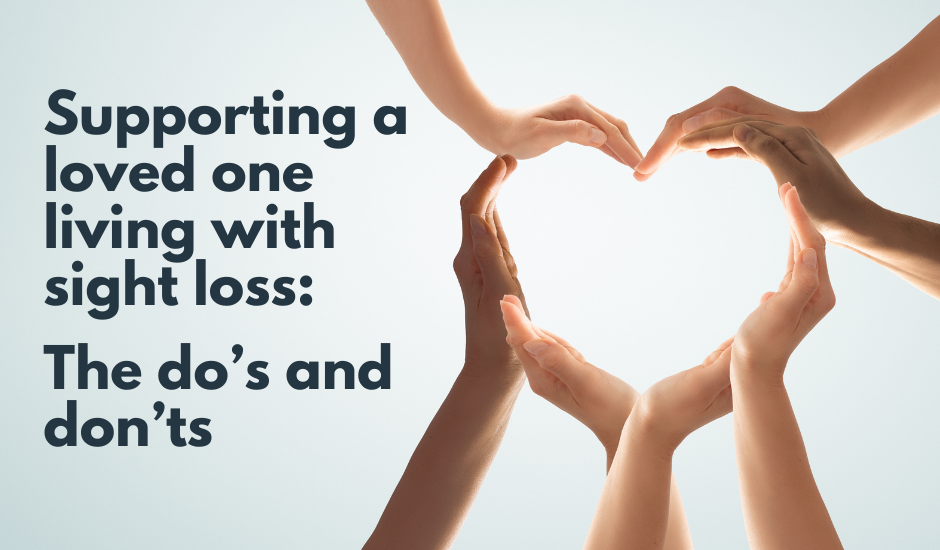
When a loved one is diagnosed with sight loss, you want to help – but what’s the best way to do that? And what are the pitfalls you need to avoid?
Of course, every situation is different but there are recurring themes as you try to navigate the delicate balance of supporting them with empathy and respect.
Let’s explore the art of being there for someone in a world that’s changed for them but is no less full of potential.
What condition have they been diagnosed with?
Sight loss affects people in various ways, depending on the severity and the individual’s personal experience.
Educating yourself about your loved one’s specific condition can make a significant difference in how you offer support.
There are lots of resources online and of course, we can help you.
Understanding their condition sets you up for the best way of supporting them
But what are the right (and wrong) things to do?…
Let’s start with ‘The Do’s’
- Do listen to their needs and preferences. Each person’s experience with sight loss is unique and the support they want will be too.
- Do encourage independence. Support them in finding ways to do tasks themselves with the right tools and techniques.
- Do help make their home accessible. Simple adjustments can make a big difference in their comfort and mobility at home.
- Do listen with intent. It’s not just about hearing words but understanding the feelings behind them.
- Do encourage them to ‘get out there’. There may be a tendency to hide away following a sight loss diagnosis, but there is a support community ready to help.
- Do try to help them stay positive and pragmatic. Their journey (and yours) will be one of change and practical steps that can seem daunting at first.
What are the things to avoid?
- Don’t over-help. It’s natural to want to assist, but doing too much can hinder their ability to remain independent.
- Don’t ignore their emotional needs. Sight loss can be emotionally taxing so be there to listen and support.
- Don’t forget about accessibility. Always consider how accessible a space or activity is for them.
- Don’t let your relationship fundamentally change. You’re helping a loved one, a friend. You’re not trying to become their carer.
- Don’t lose your patience. Things will take longer and their frustrations may grow, but if you remain calm and patient you’ll be making a positive difference.
What if I do the wrong thing?
The fact that you’re reading this is a huge step in the right direction – it shows you want to truly help a loved one with sight loss.
Supporting is about finding the balance between assistance and independence and often it’s the subtle steps that make the most significant impact.
By embracing the do’s and avoiding the don’ts, you become more than just a supporter; you become a partner in their journey of adjusting to sight loss.
Where can I go for more advice?
We’re by your side in this journey so whether you’re seeking support, or simply want to learn more about living fully with sight loss in Warwickshire, just drop us a message, check out our website resources or give us a call and we’ll help.